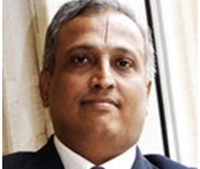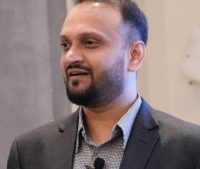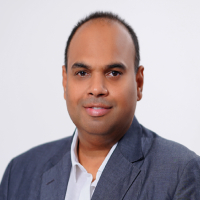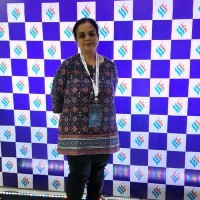INTERVIEW OF THE MONTH
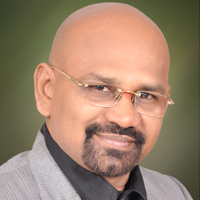
INTERVIEW WITH PROFESSOR. M. S. RAO, Ph.D
International Leadership Guru
Professor M.S.Rao, Ph.D. is the Father of “Soft Leadership” and Founder of MSR Leadership Consultants, India. He is an International Leadership Guru with 37 years of experience and the author of 37 books including the award-winning ‘21 Success Sutras for CEOs’
What are the skills that will be needed to keep oneself relevant in the workplace?
There are many skills that are essential to keep professionals relevant in the workplace. Some of them include self-awareness, adaptability, creativity, collaboration, networking, soft skills, hard skills, digital skills, conflict management skills, and ability to overcome volatility, uncertainty, complexity and ambiguity (VUCA).
Here is an elaborated list of qualities professionals must possess to succeed in the corporate world: attitude, domain knowledge, leadership, team spirit, passion to learn and grow, taking responsibility, goal-setting, time management, attentive listening, adaptability and flexibility to name a few.
Here are some traits, skills and abilities to stand out as a successful professional: Acquire communication skills. Work in teams. Master four areas of business communication ― speaking, listening, writing and reading skills. Be socially adaptable. Stick to ethics and etiquette. Maintain confidentiality. Don’t carry forward information. Don’t spread rumours. Don’t badmouth others as it bounces back strongly against you. Believe in excellence. Take feedback constantly. Learn continuously.
How do you believe education needs to be redefined in this VUCA world, and how do universities need to prepare the students to deal with it?
Universities must update their curriculum regularly to keep pace with technology. They must design courses to prepare students to work in future. They must emphasize more on building character and values than on offering paper degrees. Currently students have multiple ways of learning including internet. They are driven by purpose, not profit. Hence, it is essential for educators to understand their pulse and teach them to convert them into successful global workforce. With the advent of internet and social media, students are equally equipped with information the way educators are equipped. Hence, educators must prepare thoroughly to stay ahead of times and technologies by equipping themselves with updated knowledge to share with students. They must do research regularly to innovate their subjects and coin new concepts and models. They must differentiate between information and knowledge and share knowledge accordingly. The students are much smarter than educators because of their ability to adapt to technology quickly. Keeping these aspects in view, the educators must learn, unlearn and relearn regularly to stay ahead of smart students to command respect from them. Above all, students must remember that technology cannot replace teachers.
From an organisational perspective, global companies must develop agile leaders to overcome VUCA, the phrase coined by Bob Johansen. Some of the Fortune 500 companies have vanished from the list because they failed to adapt and reinvent. Hence, current volatility, uncertainty, complexity and ambiguity must be replaced by vibrancy, understanding, creativity and agility.
Traditional leadership development training programs (LDPs) contain experiential learning, on-the-job training, job assignments and coaching to name a few. In the current VUCA world, it is essential to incorporate complex thinking skills, strategic skills and technological skills in LDPs. Global organizations must emphasize managing complexity and uncertainty in LDPs. There is an urgent need to innovate LDPs. For instance, global organizations including Proctor & Gamble have innovated their LDPs to overcome VUCA.
Traditionally, LDPs focused on horizontal development which means developing competencies, not on vertical development which means developmental stages. Hence, LDPs must emphasize more on vertical development than horizontal development to overcome VUCA. Horizontal development is like filling the empty glass with water while the vertical development is like expanding the glass itself. The good news is the vertical development can be learned by oneself unlike horizontal development that can be learned from experts alone.
Digital skills are often alluded to mean technical skills. Can you speak something about the increasing relevance of soft skills in a digital world and how enterprises need to plan for it?
People often confuse between digital skills and technical skills. Digital skills are different from technical skills. Technical skills are domain skills and hard skills. They are different from soft skills. There are several myths associated with soft skills because people often mistake them for emotional intelligence, communication skills, people skills, and English-speaking skills to name a few. I have observed several trainees and audiences perceiving them as soft skills. Since I earned my PhD in soft skills and authored five books on soft skills, I found it easy to debunk these myths. In fact, soft skills are all about your personality, attitude and behaviour. They are essential from pauper to president and from peon to principal to survive. They are essential from entry level executives to senior level executives including C-level leaders. Soft skills complement hard skills. A judicious blend of soft and hard skills is essential to survive in the corporate world. Therefore, enterprises must incorporate soft skills in their corporate training and leadership development training programs (LDPs). Soft leadership is to get the tasks executed effectively with people-orientation without compromising task-orientation. It is about partnership as the millennials appreciate working with partners rather than with leaders. Soft leadership is leading through soft skills and people skills. It blends soft skills, hard skills and leadership. It emphasizes the significance of precious Human Resources. It helps in managing the emotions, egos, and feelings of the people successfully. It focuses on the personality, attitude, and behaviour of the people, and calls for making others feel important. It is an integrative, participative, relationship, and behavioural leadership model adopting tools such as persuasion, negotiation, recognition, appreciation, motivation, and collaboration to accomplish the tasks effectively.
What are your key messages to enterprises as they accelerate their path to digital?
It is essential to go digital in the prevailing global scenario to stay relevant and vibrant. There is more emphasis on artificial intelligence currently. Enterprises must understand that as long as automation complements human, it is advisable to accept automation. The day automation or artificial intelligence overtakes humans, it becomes a threat to humans. Technology is a double-edged sword. We must know how to use it judiciously for human progress and prosperity.



